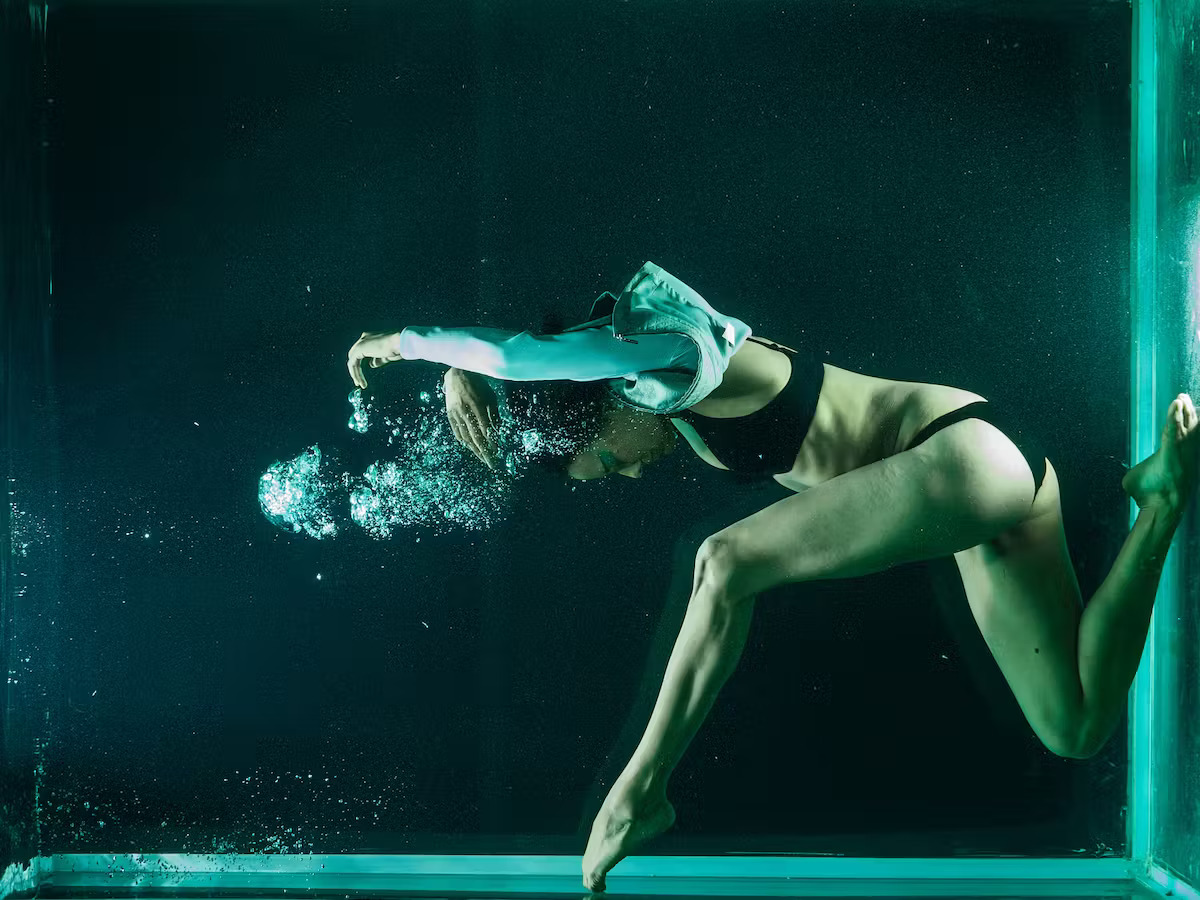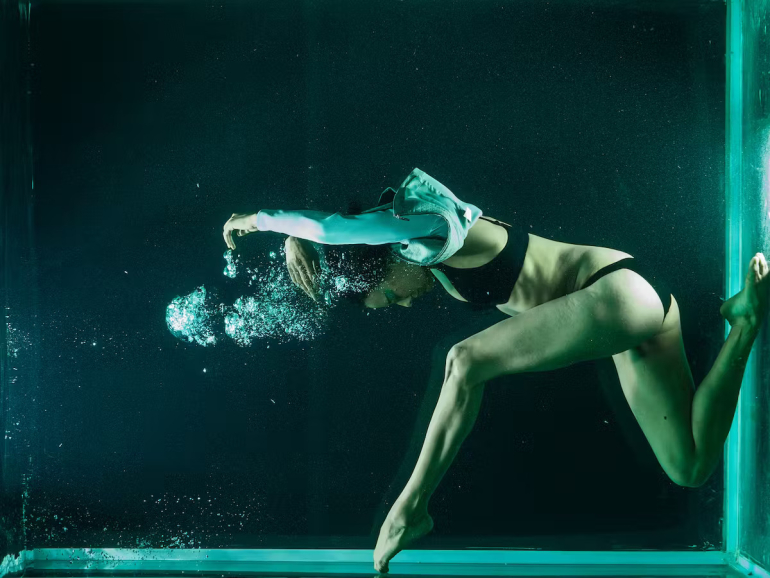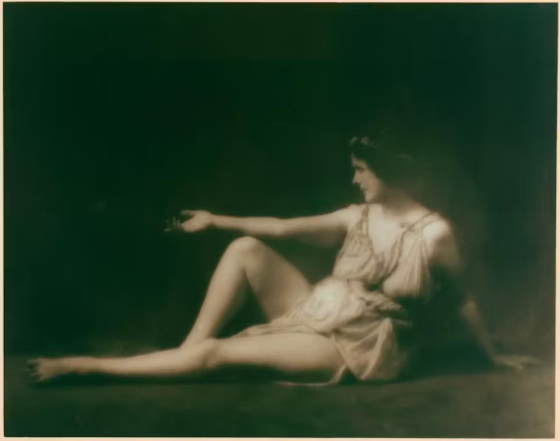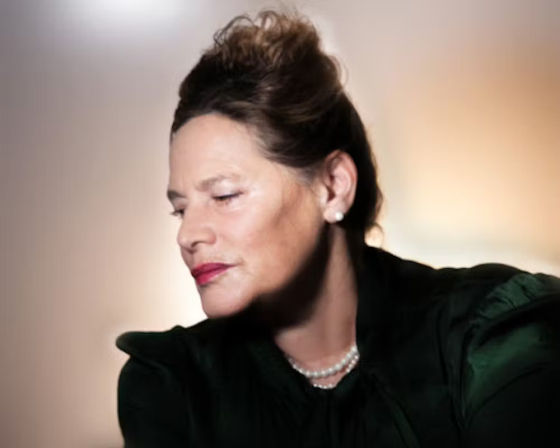
The opening sentence of Deborah Levy’s new novel August Blue contains the germ of the whole: “I first saw her in a flea market in Athens buying two mechanical dancing horses.” Its simplicity and specificity are classic Levy – and yet it’s loaded with mystery. Who is this woman? Why mechanical animals? Why horses? Why two? Why dancing?
In this book, as compact and artfully worked as a sonnet, all these questions are answered. Or, more accurately – because Levy prefers questions to answers – they are played with, teased out, turned over.
Review: August Blue – Deborah Levy (Hamish Hamilton)
Reality remade
August Blue unfolds across a year from September to August as its narrator, an acclaimed classical pianist, drifts across a Europe emerging from lockdown. The world is a now-familiar present, with surgical masks, cancellations, lost jobs, parents working from home and intruding on their children’s lives. Life is slowly opening up in the aftermath of the pandemic; it seems as protean and up for grabs as the protagonist herself.
The narrator is 34-year-old Elsa M. Anderson: statuesque, beautiful and unravelling. When we first learn her name, it’s her whole, professional name, spoken by her internationally renowned piano teacher, Arthur Goldstein:
I had once heard him say to a journalist, No, Elsa M. Anderson is not in a trance when she plays, she is in flight.
It’s this whole professional self, with its enigmatic M-full-stop, and the soaring persona it denotes, that is up for grabs in August Blue.
Elsa has been untethered by a professional crisis in Vienna the previous August. Like the world around her, she is improvising through a time of rupture. Reality is slowly being remade and Elsa, too, is being remade after apparently losing her nerve on stage just before a performance of her signature piece, Rachmaninoff’s Piano Concerto No. 2.
Her brilliant career is on hold and she’s decided to give piano lessons instead, to 13-year-old Marcus on the Greek island of Poros in September and 16-year-old Aimee in Paris the following November. Her students are also in flux. Sensitive Marcus is navigating a new pronoun; and Aimee, raging from a past hurt and feeling unseen, is finding her voice.
Echoing her experience with Rachmaninoff – that moment she lost her concentration on a man’s composition – the amorous men who cross Elsa’s path are unable to hold her attention. It has been seized by the woman buying two horses. This woman will be the thread that strings together the fragments of Elsa’s life.
She and Elsa appear to be the same age and when Elsa first sees her they’re wearing almost identical raincoats. Elsa immediately senses the woman is her double:
My startling thought at that moment was that she and I were the same person. She was me and I was her. Perhaps she was a little more than I was.
The woman begins to intrude on Elsa’s mind, prompting and finishing her unspoken thoughts. Their fragmented telepathic exchanges allow Elsa to hear and bring to light – to begin to compose – the nascent self who interrupted her performance of Rachmaninoff and caused her professional undoing.
‘Upwards and outwards’
Like Rachmaninoff’s concerto, August Blue is set in a minor key. It contains the heat and desire of a European summer and yet its tone is blue, invoking melancholy, midnight, the expanse of sea and sky, the upward struggle of a soul. “Upward” is a word and movement – a direction – that gathers psychological and symbolic meaning through the novel.
Elsa is haunted by the past, including the men who have shaped her, Goldstein and Rachmaninoff. But there’s also something beyond them, more distant and yet more present, that’s haunting her, or erupting within her.
Elsa is reading the autobiography of Isadora Duncan, the mother of modern dance. Duncan’s aesthetic practice offers her a form and language – the body’s – to free and contain this eruption:
Isadora Duncan was also in my thoughts, as usual. Above all else, she believed in what she called freedom of expression: “I will show you just how beautiful the human dancing body can be when it is inspired by thoughts.” Presumably she meant the thoughts that moved her upwards and outwards.
The phrase “upwards and outwards” recurs. It articulates Elsa’s emergence from the ruins of her old life, as well as a mode of living in the wake of a global trauma. It suggests a practice of passionate engagement with the stuff of the world, its sensory richness, as a way to live through a time when “at any moment, reality could flip”.
August Blue is as condensed and multifaceted as a diamond – and like a diamond, it’s the embodiment of metamorphosis. This is the unfolding of Elsa to become herself and an other, through the appearance of a doppelganger. The woman with the horses is part of Elsa’s transmutation. She simultaneously leads her outwards into the world and inwards, back to her childhood and its mysterious absences, to which this woman seems to hold a key.
A high horse of her own
August Blue is Levy’s fourth novel since her breakthrough novel Swimming Home (2011) and follows Real Estate (2021), the third of her “living autobiographies”. All her writing is concerned with centring women’s lives and so, necessarily, with mothers and creation. In Real Estate, Levy’s narrator-self wonders why she is
still searching for a missing female character. If I could not find her in real life, why not invent her on the page? There she is, steering her high horse with flair, making sure she does not run over girls and women struggling to find a horse of their own.
In Real Estate she also recounts the startling moment when, aged 60, she first saw her mother in her own face, staring back at her in the bathroom mirror. She is there in Levy’s Paris apartment from beyond the grave. Finding her mother present in her adult self interested Levy in doppelgangers and the idea of seeing yourself in a new way in the face of someone else. Her mother is there when Levy looks at a photograph by Edmund Engelman of Freud’s street in Vienna. It’s been raining and there’s a man in the street wearing a trilby.
All these fragments, including the resonance between doubling and mothers, magically inform August Blue. In this novel, Levy has refashioned details from her living autobiography to compose another thrilling “answer” to the question that preoccupies her:
Who is she? That is the question I was starting to ask in all my books. Not who am I, though that comes into it. How does she get along in the world that voided her?
This is a question that also preoccupies novelist and memoirist Rachel Cusk. Reading August Blue, I felt like Levy’s novel was conversing with Cusk’s “Faye trilogy” (Outline, Transit and Kudos), which is also concerned with women’s lives and features a narrator who is recomposing herself through her encounters with others.
The books share a similar movement through Europe and various houses following a rupture; and narrate times of liminality and dissolution. And they contain common elements: the teaching of students in Europe, formative scenes at a hairdresser, necessary immersions in water. Are these daily practices key aesthetic modes by which a woman recreates her self and her life?
How you might recreate yourself in the wake of a shocking rupture is now a pressing, global question. August Blue suggests you plunge yourself into life and listen: you pay attention to what life is telling you, to what it is asking from you. And life plays by the highest stakes, insists upon the greatest gamble: love.
Love was the adrenalin, the addiction, it was like a slot machine, you put the coins in and a poet of twentieth-century music was the jackpot.
August Blue is mesmerising. I read it like a thriller, often feeling the urge to weigh its slender size against the great magnitude of its reach. It’s Levy at her best.![]()
This article is republished from The Conversation under a Creative Commons license. Read the original article.



